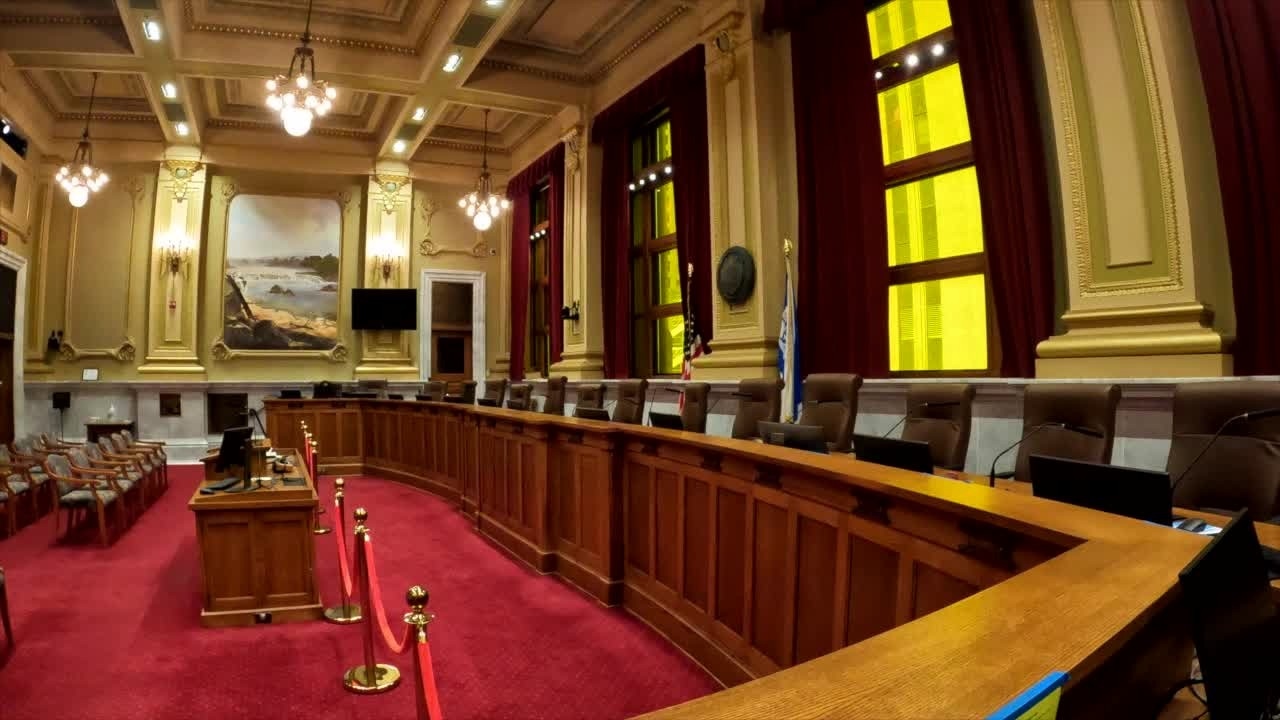Minneapolis leaders give update on public safety changes after civil unrest in 2020

FILE - The Minneapolis City Council chambers on Nov. 8, 2023. (KSTP-TV)
On Tuesday, Minneapolis city leaders discussed the changes that are now being made after a report found problems with the way they handled the civil unrest in 2020.
Bryan Gorman, the city’s interim director of emergency management, gave a presentation with updates on how the improvement plan is going.
One of the final steps of the project includes 60 Minneapolis participants attending a course in Maryland in March. The course is put on by the Federal Emergency Management Agency. The participants will then complete a capstone with FEMA.
These changes are happening as Mayor Jacob Frey has previously said that the city will be ready the next time “something goes down,” and after an outside agency found city officials failed to provide necessary leadership and communication during a 10-day stretch in May and June of 2020.
The last time 5 EYEWITNESS NEWS got an update on the city’s progress was back in March, when Frey stated 17 of the 27 recommended changes were complete.
As of Tuesday’s meeting, only seven recommendations remained.
Those changes also include how Minneapolis police handle protesters during civil disturbances, including the use of less lethal munitions.
“I’ve been very clear to the command staff, to all members of the department, that we will not use force unless absolutely necessary, and that we will ensure that we protect people’s first amendment rights constantly. This isn’t only when there is civil unrest,” said Minneapolis Police Chief Brian O’Hara.
Deputy Chief of Constitutional Policing Travis Glampe spoke in front of the Minneapolis Committee of the Whole Tuesday to detail how the department is doing with the recommendations.
One of the recommended changes was to have more community conversations. Glampe shared that the department has had community meetings to ask for feedback on reforms.
MPD has also met with the police department in Charlotte-Mecklenburg, North Carolina to learn about speaking with organizers of protests ahead of time so that “We can all work on the same page to the extent possible.” This will be formalized in writing and is currently being drafted into the department’s written procedures.
The department is still working to create a plan to protect vital infrastructure in the case of another case of civil unrest to the level that occurred in 2020. This plan is in its final steps and will be completed in Q1 of 2024.
Finally, MPD is hiring a Health and Wellness Manager to help improve employee wellness.
Greta Bergstrom, the city’s director of communications, then gave an update on the recommendations given to the communications department.
The department was tasked with creating a crisis communications plan, which it completed. This included training for the communications department, as well as public information officers. The plan will guide PIOs on what information to share with the public and when the information should be shared in the event of a crisis.
CLICK HERE for KSTP’s complete George Floyd coverage.
RELATED: ‘Fundamentally Flawed’: DOJ blasts MPD’s discipline system
RELATED: Minneapolis City Council approves significant reform to police department
RELATED: Minneapolis, MDHR report progress toward consent decree
RELATED: Minneapolis City Council to review findings of state’s investigation into city’s police department
RELATED: Minneapolis City Council vote could bring major changes to Minneapolis Police Department
RELATED: Minneapolis City Council searches for agreement on consent decree, police oversight
RELATED: Agreement to better policing nearing, DOJ investigation could create challenges
RELATED: MDHR letter to Frey outlines steps for September consent decree submission